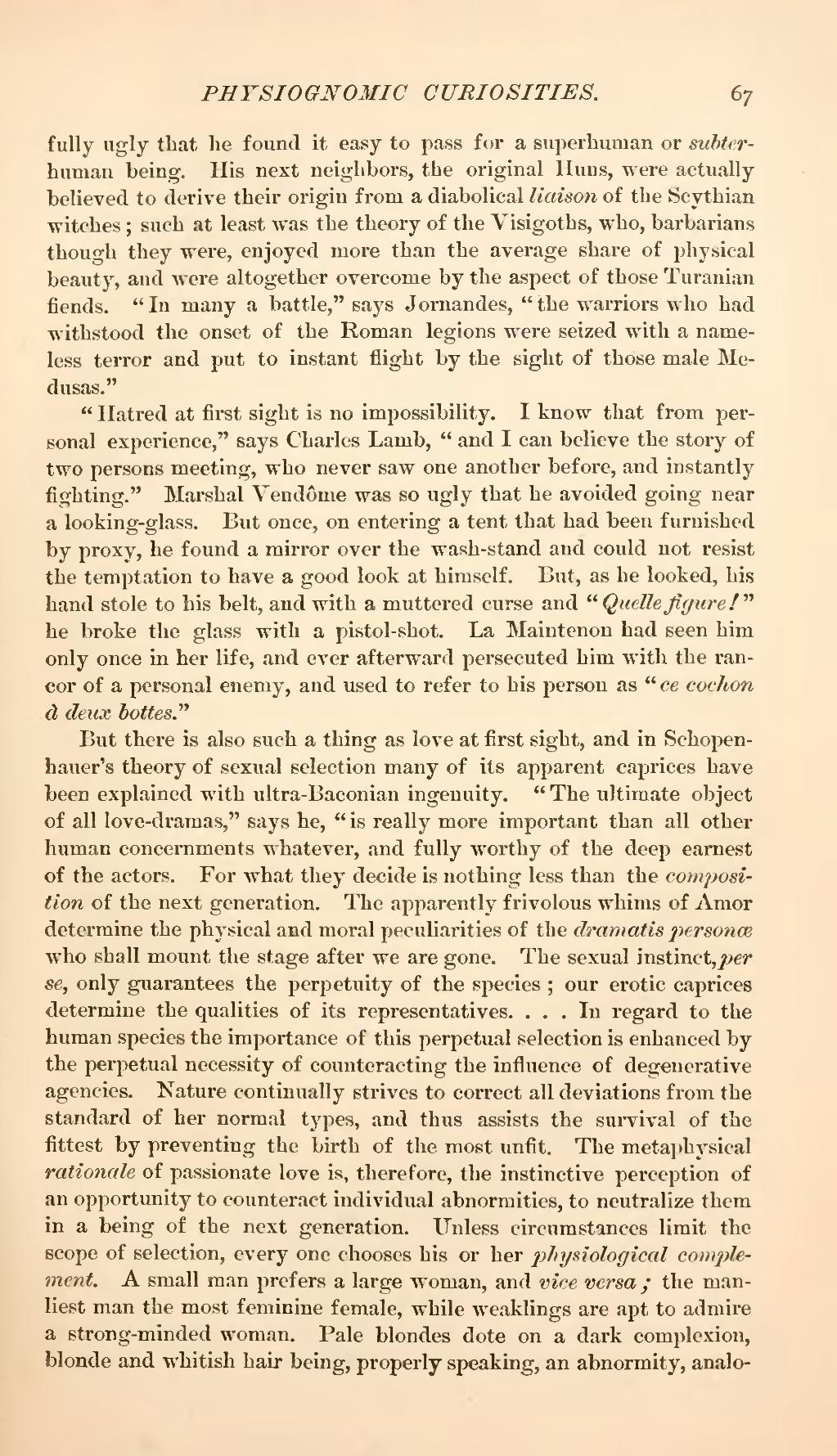fully ugly that he found it easy to pass for a superhuman or subter-human being. His next neighbors, the original Huns, were actually believed to derive their origin from a diabolical liaison of the Scythian witches; such at least was the theory of the Visigoths, who, barbarians though they were, enjoyed more than the average share of physical beauty, and were altogether overcome by the aspect of those Turanian fiends. "In many a battle," says Jornandes, "the warriors who had withstood the onset of the Roman legions were seized with a nameless terror and put to instant flight by the sight of those male Medusas."
"Hatred at first sight is no impossibility. I know that from personal experience," says Charles Lamb, "and I can believe the story of two persons meeting, who never saw one another before, and instantly fighting." Marshal Vendôme was so ugly that he avoided going near a looking-glass. But once, on entering a tent that had been furnished by proxy, he found a mirror over the wash-stand and could not resist the temptation to have a good look at himself. But, as he looked, his hand stole to his belt, and with a muttered curse and "Quelle figure!" he broke the glass with a pistol-shot. La Maintenon had seen him only once in her life, and ever afterward persecuted him with the rancor of a personal enemy, and used to refer to his person as "ce cochon à deux bottes."
But there is also such a thing as love at first sight, and in Schopenhauer's theory of sexual selection many of its apparent caprices have been explained with ultra-Baconian ingenuity. "The ultimate object of all love-dramas," says he, "is really more important than all other human concernments whatever, and fully worthy of the deep earnest of the actors. For what they decide is nothing less than the composition of the next generation. The apparently frivolous whims of Amor determine the physical and moral peculiarities of the dramatis personæ who shall mount the stage after we are gone. The sexual instinct, per se, only guarantees the perpetuity of the species; our erotic caprices determine the qualities of its representatives. . . . In regard to the human species the importance of this perpetual selection is enhanced by the perpetual necessity of counteracting the influence of degenerative agencies. Nature continually strives to correct all deviations from the standard of her normal types, and thus assists the survival of the fittest by preventing the birth of the most unfit. The metaphysical rationale of passionate love is, therefore, the instinctive perception of an opportunity to counteract individual abnormities, to neutralize them in a being of the next generation. Unless circumstances limit the scope of selection, every one chooses his or her physiological complement. A small man prefers a large woman, and vice versa; the manliest man the most feminine female, while weaklings are apt to admire a strong-minded woman. Pale blondes dote on a dark complexion, blonde and whitish hair being, properly speaking, an abnormity, analo-
